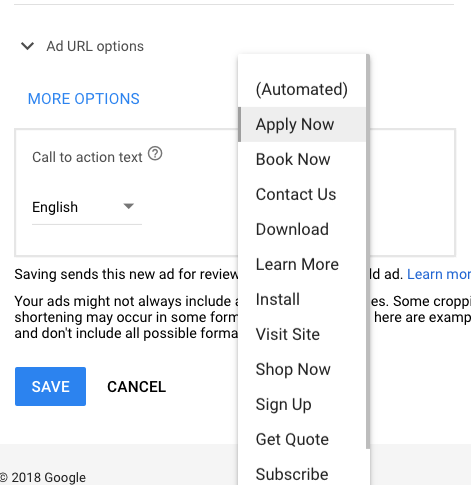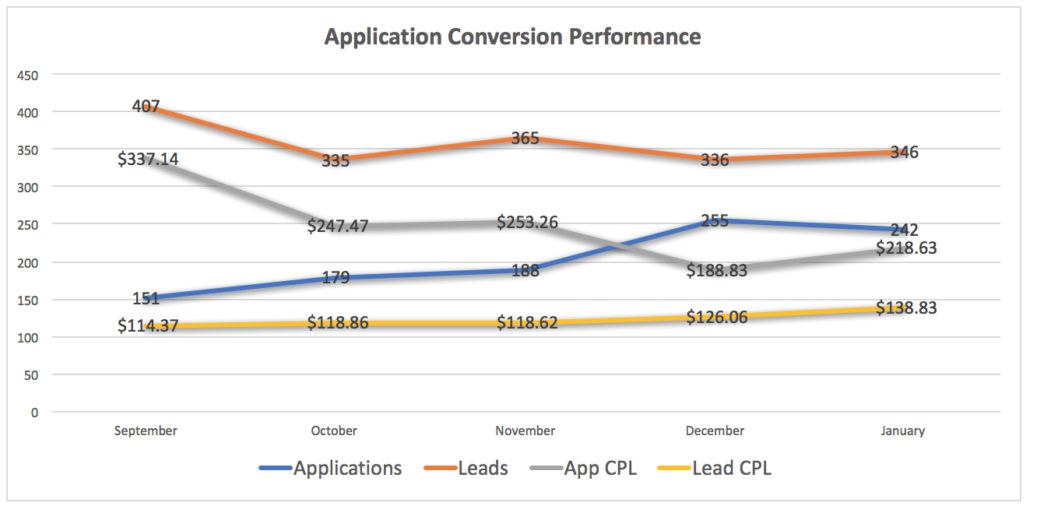It is not uncommon in PPC, especially with lead generation accounts, to track multiple types of conversions. Within one account, you can track phone calls, lead form fills, content downloads, newsletter sign-ups etc. And, while you can attribute different values to your lead types to accurately measure performance, how do you strategically integrate optimizations that promote one over another? Enter the challenge…
The Challenge
I have a client who sources candidates for open job positions. Typically, a lead gets pushed through to a recruiter who then converts the lead to an application at which point, the individual can be placed in an open job position. Given a strain on resources they were experiencing, they wanted to know if they could use PPC to increase the number of application conversions to lessen the number of leads a recruiter had to convert. We had always tracked applications as a separate conversion type, but we had never implemented a strategy around application growth. So, I got to noodling…
The Strategy
My strategy for how to tackle this challenge divided into several prongs:
- Select and target audiences more likely to be ready to fill out an application
- Create hyper-relevant ads with a sense of urgency
- Direct ads straight to an application URL
- Use a strong, undeniable CTA: “Fill Out Your Application Today!”
- Ensure this conversion type is reflected in sitelinks
I notified my client of a handful of expectations after making this shift, especially since there was no additional budget available at the time of launch:
- Overall conversion volume is expected to decline given that we are sourcing for lower funnel conversions
- CPL will likely rise as the application conversion action historically had a CPL 3X the lead CPL
Implementation
Audience selection involved Remarketing to several audiences including those who had previously filled out a lead, a hyper targeted, interest-based display campaign, and stronger CTAs on Brand Campaigns. I made sure to label the new ads so that conversion rate comparisons would be readily available. I also made sure that the CTA button on my responsive ads in the display campaign was relevant. You can change this easily in adwords but the option is a bit illusive. When creating your responsive ad click “More Options.” From here, there’s a menu that drops down to offer CTA button options. These default to “automated” if you do not select an option.

The Results
We ran this test for a few months and saw tremendous success. Once the strategy was in place, we zeroed in on the campaigns that were promoting the most application volume and adjusted budgets to favor these campaigns. The best part was that we were able to keep lead volume and lead CPL relatively steady while continuing to increase application volume.

Key Takeaways
- It took me a total of two seconds after outlining this strategy to recognize that I should be applying this mentality to all campaigns in every account I manage. Being aware and purposeful about the intent and structure of our ads can aid us all in being better marketers.
- When steering away from your standard course of lead generation remember to project possibilities. Setting expectations with your client about how performance is expected to be impacted ahead of time due to pivoting strategies will save you a lot of explanation down the road.
- PPC can have problem-solving capabilities that can assist your clients in other parts of their business. In this case, by getting more applications in the funnel, we alleviated a strained part of our client’s workflow and their team was extremely grateful.
Preemptively offering a strategy for driving higher-impact lead acquisition would be well-received by any client. Dive into your accounts and see if there is a way to promote higher quality conversion types. Be intentional, set expectations, and explore PPC capabilities outside of your standard operating procedure.



